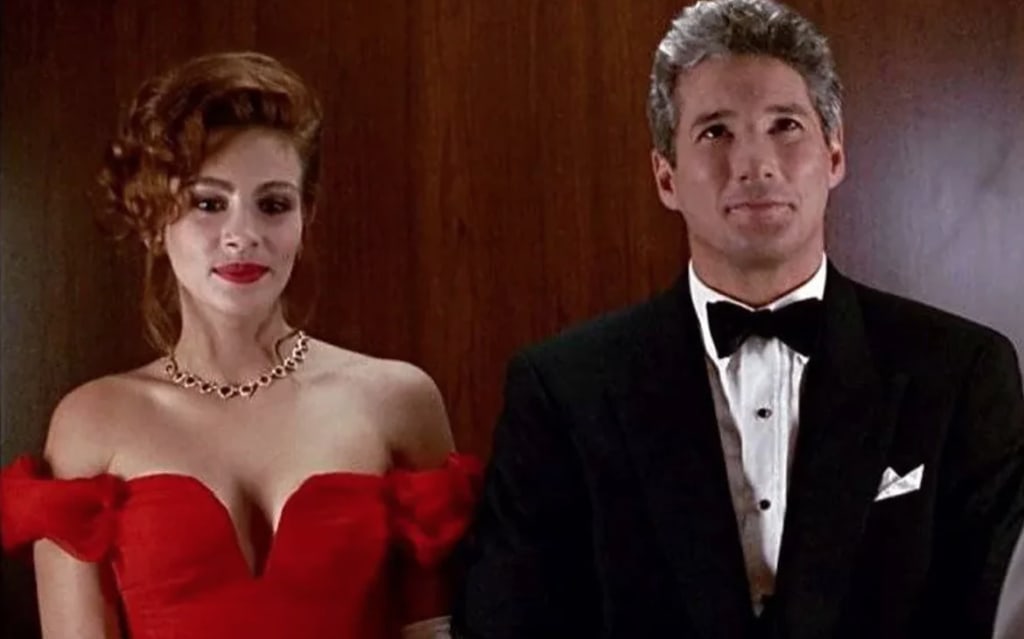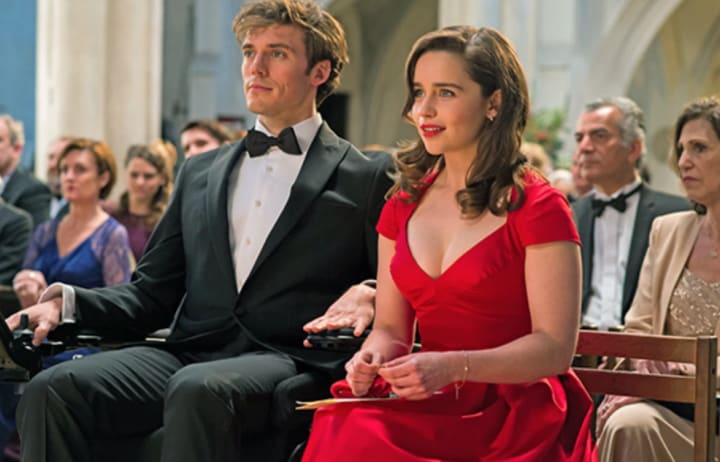‘Me Before You’ (2016) vs ‘Pretty Woman’ (1990)
Comparison of movies 'Me Before You' (2016) and 'Pretty Woman' (1990) and depiction of female and male roles and characters in them.

Four years ago, when I still headed a literature club in Geneva (Switzerland), we had the book ‘Me Before You’ by Jojo Moyes read and discussed. The discussion coincided with the release of the movie of the same title. I remember the heated discussion that went around the subject of true love and whether Will loved Clark. Apart from myself and another woman everyone else thought that it was a tragic but romantic story and a true love. At the time, I could not convince those ladies that they were mistaken for the author would not have titled the book ‘Me Before You’ if the story was simply a tragic-romantic one. The title of the book as well as the movie bares a deeper thought and reflects on the old male paradigm. The very same paradigm that was applied in the movie ‘Pretty Woman’ (1990).
In 1990 when the movie ‘Pretty Woman’ was released it represented a ‘dream come true’ of the then president of the Walt Disney Studios, Jeffrey Katzenberg. Namely, a modern fairy tale of a prostitute turn princess by a wealthy and successful businessman. The businessman, Edward Lewis, was rich, handsome, egocentric, ruthless, and heartless. The prostitute, Vivian Ward, – naïve, street-smart, uneducated, unworldly but sexy. She was at his service, and he was her charitable ‘Daddy’. Their names refer to their roles in the depicted situation if not in the whole life pattern. Edward means ‘guardian’ and Lewis unwittingly points at Lewis Carroll, the author of 'Alice in Wonderland', the very wonderland Edward-the businessman created for Vivian-the prostitute. Vivian means 'alive', and her surname Ward means a person put under the protection of a guardian. The names alone draw a clear picture of the situation presented in the movie – the guardian puts its ward into a wonderland where nothings as it seems. Indeed.

Now, 26 years later, an English journalist, novelist, and screenwriter, Jojo Moyes, looked at the same paradigm from the female point of view. Namely, the point of view of a working-class but happy go lucky, Louisa Clark and her ‘ward’ - Will Traynor, a successful banker and a very driven man, except that he cannot quite exercise his power for he is paralysed – a result of a car accident. As with the ‘Pretty Woman’, the names of the main characters not only describe the type of the relationship they have but also illustrate the same paradigm as in the ‘Pretty Woman’. Louisa means ‘warrior’ and her surname Clark corresponds with ‘clerk’ or an ‘assistant’. The name William means ‘conqueror’, apart from that its shorter version is written and pronounced exactly as will – wish, desire.
What is rather interesting is that throughout the whole book/movie Will consistently addresses Louisa as Clark and not Louisa. This says a lot about how he regards her.
Louisa Clark comes into Will’s house as a day carer. In reality, she is the one who has full control of the situation and yet it is Will who gains control over Louisa instead. Thinking she is doing the great deed, Louisa tries to evoke a spark of life in Will as well as to show him the bright side of life in his peculiar situation. She tries everything but, in the end, fails, as Will still adamant that he should end his life for he sees nothing in it to look forward to. Apparently, love that Louisa feels for him is not enough as he himself states. Will believes that Clark deserves to be happy – by being 'happy' he means all earthly and sensual pleasures including sex which he could not give her. And thus, he goes as he wished, and she stays with her love and unfulfilled wish.
The old male paradigm consisting of three elements: wealth, career, and sex, seems to prevail again, even when on the other side of the scale lie love, genuine feelings, and happiness. To me, ‘Me Before You’ shows that whether it is presented from a male or female perspective the outcome of the relationship with such men as Edward Lewis or William Traynor will always have a win-lose outcome. On the winning side there will, of course, be the male values and on the losing one - the female needs, views or desires.
The question therefore arises: why is it that the female values - love and caring - are diminished to the insignificances – either a prostitute or an uneducated working-class girl, - and the male values of money and sex are elevated to the level of success?
Perhaps, the time has finally come to explore a different kind of paradigm where love, genuine feelings, and happiness for both parties are at the core… In other words, the win-win outcomes based on true values.
About the Creator
Seraphima Bogomolova
Creative entrepreneur/Cinematographic visionary
Screenplays:
‘A Tricky Game', 'Puzzled, and 'Головоломка'
Books:
Головоломка, Puzzled, Задача с неизвестными, Загадка Восточного Экспресса.
Non-fiction books:






Comments
There are no comments for this story
Be the first to respond and start the conversation.